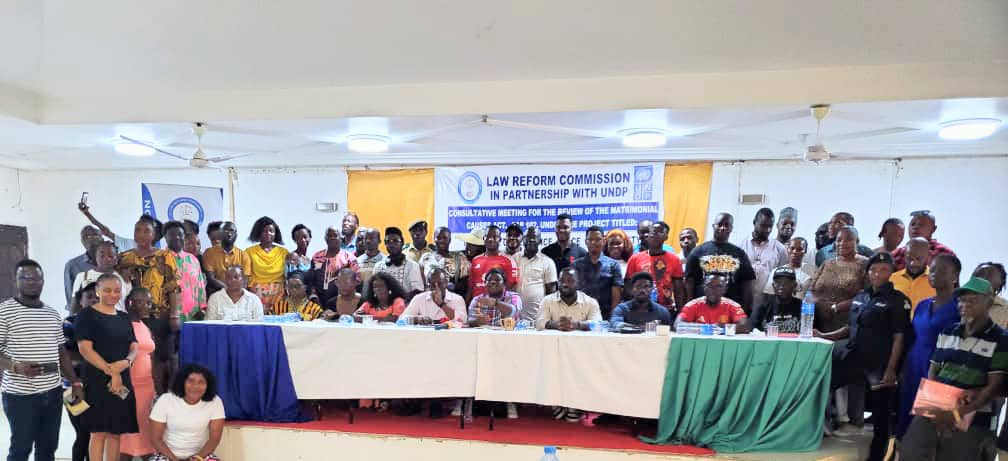By: Alusine Rehme Wilson

Stakeholders from Sierra Leone’s northern region have endorsed key recommendations to reform the country’s 75-year-old Matrimonial Causes Act, a move hailed as a significant step toward ensuring gender equality and strengthening family law.
The consultation, held at the Wusum Hotel in Makeni, brought together representatives from Bombali, Falaba, Koinadugu, and Tonkolili districts. Participants included journalists, religious leaders, youth and women's rights advocates, as well as legal and security professionals.
The session was facilitated by the Law Reform Commission (LRC) of Sierra Leone, with support from the United Nations Development Programme (UNDP) and the Government of Sierra Leone.
The focus was on reviewing Chapters 95 and 97 of the Matrimonial Causes Act, enacted in 1950 under CAP 102, which governs both civil and Christian marriages and divorces in Sierra Leone. Officials from the LRC presented the historical background of the Act, highlighting its legal and cultural shortcomings, especially in light of Sierra Leone’s international commitments to protect women’s and children’s rights and uphold gender equality.
Participants were educated on a broad range of issues related to matrimonial law, including divorce, judicial separation, division of property, alimony, custody of children, and both prenuptial and postnuptial agreements.
The day's discussions also covered distinctions between personal and real property, inheritance, and the handling of assets acquired before or during marriage.
Seasoned legal professionals, including representatives from the Legal Aid Board, led the presentations which were followed by interactive question and answer sessions, group discussions, and evaluations, which culminated in stakeholder endorsement of the proposed reforms.
Speaking to AWE Media Sierra Leone about the event, Kadiatu Michaella Jalloh, Legal Counsel at the Law Reform Commission, expressed optimism following the meeting. “We are encouraged by the enthusiasm and thoughtful contributions from the northern region. Some participants will be invited to the upcoming national validation process,” she said.
She added that "the final reform document, shaped by these regional consultations, will be submitted to statutory bodies for consideration. We believe this reform will be a game-changer for matrimonial equality in Sierra Leone.”
The review of the Matrimonial Causes Act is part of a broader legal reform initiative aimed at modernizing Sierra Leone’s legal system to reflect current social realities and international legal standards.
Comments
Post a Comment